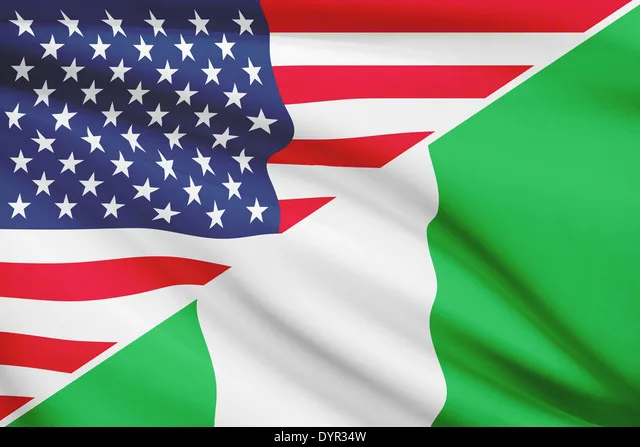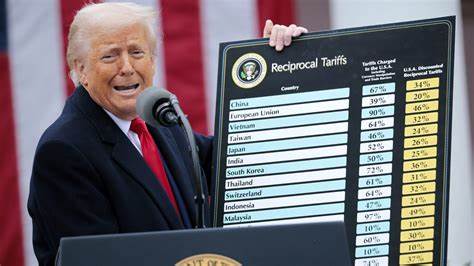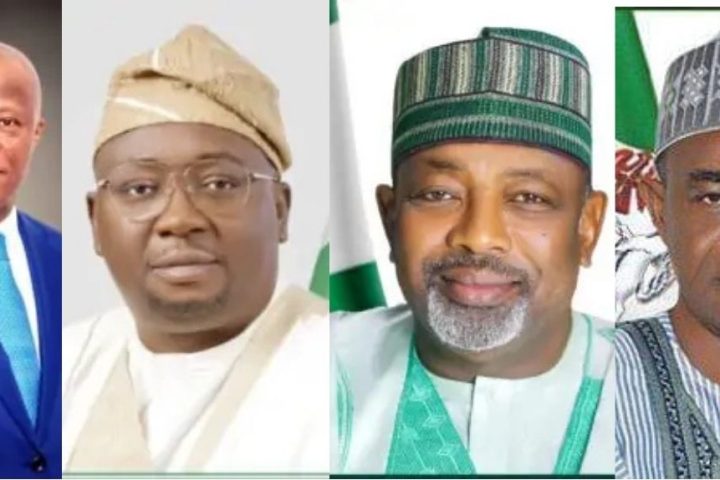The US Election 2024 and Nigeria: A Crossroads for Economic Impact
As Americans prepare to vote in the US Election 2024, Nigeria, along with other emerging markets, is on high alert. The outcome could have substantial implications for Nigeria’s financial landscape, influencing the naira, stock market stability, and bond yields.
With Donald Trump and Kamala Harris running neck-and-neck, the stakes are high. Many Nigerians and market analysts speculate how each candidate’s potential presidency could sway the country’s economic resilience.
Join our WhatsApp Channel“Whichever candidate wins, Nigerians should prepare for ripple effects that will reach our shores almost immediately,” warns Oyekan Idris, a capital market analyst based in Lagos. “The policies of the next US president will shape global investment flows, potentially redirecting funds that affect our markets and currency.”
Market Sensitivity Amid US Election Uncertainty
The anticipation surrounding the US Election 2024 has already caused notable jitters in global stock markets. The Nigerian stock market, in particular, is seeing increased volatility. Investors are cautious, with some considering hedging their assets against potential fallout. In Nigeria, where foreign investments play a critical role, the outcome of the election is seen as a key factor that could either stabilise or disrupt the market.
Should Trump secure a victory, his emphasis on growth-focused policies could lead to a short-term boost in global markets. This may temporarily benefit Nigerian stocks, encouraging an influx of foreign capital. Conversely, a Harris win could bring a more cautious approach toward US fiscal policies, potentially reducing risk tolerance and lowering investor interest in emerging markets like Nigeria.
The Naira Faces its Toughest Test
Perhaps the most immediate area of concern for Nigeria is the value of the Naira, which has been under pressure due to recent economic challenges, including high inflation and FX constraints. The Naira’s trajectory could be further influenced by shifts in US policies, particularly if a new administration decides to enforce protectionist measures or revises interest rates. Both scenarios would likely strengthen the dollar, increasing the pressure on the Naira.
Economist Oluwatobi Ojabello explains, “A strong dollar puts additional strain on the Naira, especially as the Federal Reserve might push for higher interest rates if inflation continues to rise in the US. This would lure investors toward US assets, diverting funds away from Nigerian markets.”
Such a shift could lead to accelerated depreciation of the Naira, pushing the cost of imports even higher. Nigerian households and businesses, already dealing with high inflation, could face added pressure if the local currency weakens further against the dollar.
Bond Markets Brace for Impact
The US election could also have significant consequences for Nigeria’s bond market. As seen in previous election cycles, political shifts in the US can have ripple effects on global debt markets. Nigerian bonds, which are highly dependent on foreign capital, could become less attractive if US Treasury yields rise. Both Trump and Harris have proposed policies that could indirectly lead to higher Treasury yields, causing international investors to favor US bonds over riskier assets in Nigeria.
READ ALSO: US Election: I Can Only Lose If Democrats Cheat, Says Trump
Oyekan Idris comments, “Any increase in US bond yields would mean Nigerian bonds would need to offer even higher yields to attract investors, raising borrowing costs for the government. This may have a domino effect on Nigeria’s infrastructure funding and public projects.”
Higher financing costs could stall critical development projects, affecting sectors like transportation, energy, and health. For a country where these investments are urgently needed, this could deepen existing economic strains, further impacting citizens’ quality of life.
Oil Prices and Trade Policies: Nigeria’s Lifeline at Stake
Nigeria’s heavy reliance on oil exports adds another dimension to the potential impact of the US election. The direction of US energy policies under either administration could affect global oil prices, which are crucial for Nigeria’s foreign earnings. Trump’s support for energy independence, for instance, could lead to lower oil prices, hurting Nigeria’s revenue streams. Conversely, Harris might push for environmental policies that could slow down oil production in the US, potentially stabilising prices.
“Oil revenues are Nigeria’s main economic lifeline, so any US policies affecting global oil supply and demand will directly impact our economy,” explains Chike Obi, another economist. “If oil prices decline sharply due to a Trump win, we could see reduced government revenues and possibly even deeper cuts in social services.”
Moreover, the US Election 2024 could influence trade policies, such as the African Growth and Opportunity Act (AGOA), which facilitates Nigeria’s exports to the US. A protectionist approach from the next administration might threaten trade benefits, impacting Nigeria’s ability to export products to one of its key markets.
Nigerian Voices: Hopes and Fears
For many Nigerians, the US election is not a distant event but a critical turning point that could shape the country’s economic future. Some Nigerians are optimistic, hoping that a stable US administration would provide an environment conducive to foreign investments in Nigeria. Others, however, express skepticism, wary of being at the mercy of US policies and market shifts.
“It’s nerve-wracking because we know how much our economy is influenced by what happens abroad,” says Chinedu Eze, a small business owner in Lagos. “A stronger dollar means we’ll be spending more on imported goods, and if foreign investments decline, small businesses like mine will feel it the most.”
Another business man, Abdulraman Taiwo suggests, “Nigeria should focus on strengthening its domestic policies to withstand these external shocks. Relying less on foreign capital and more on local industries could provide some insulation from international volatility.”
The Path Forward for Nigeria Amid Global Uncertainty
While Nigeria cannot control the outcome of the US election, strategic planning and an emphasis on economic diversification could help lessen its vulnerability to external shocks. Policymakers are urged to fortify Nigeria’s fiscal policies, supporting sectors beyond oil and encouraging local manufacturing. This way, Nigeria might be better positioned to withstand the financial waves emanating from the US election.
Michael Brown emphasises, “For Nigeria, preparing for any potential fallout from the US election is key. A stable US economy could have positive implications, but there’s a need for internal resilience.”
As the world watches the outcome of the US Election 2024, Nigeria remains vigilant, keenly aware of how even the smallest policy shifts could impact its financial health. Whether Trump or Harris emerges victorious, Nigeria’s best hope lies in bolstering its own economic stability, ensuring that the country can navigate the ebb and flow of global politics.
Emmanuel Ochayi is a journalist. He is a graduate of the University of Lagos, School of first choice and the nations pride. Emmanuel is keen on exploring writing angles in different areas, including Business, climate change, politics, Education, and others.
- Emmanuel Ochayihttps://www.primebusiness.africa/author/ochayi/
- Emmanuel Ochayihttps://www.primebusiness.africa/author/ochayi/
- Emmanuel Ochayihttps://www.primebusiness.africa/author/ochayi/
- Emmanuel Ochayihttps://www.primebusiness.africa/author/ochayi/



















Follow Us